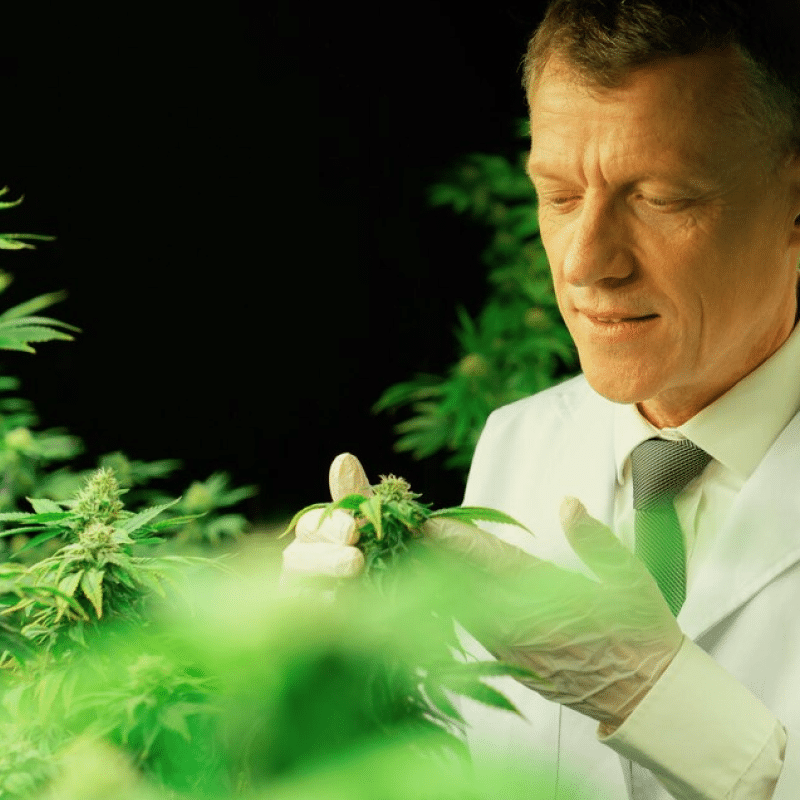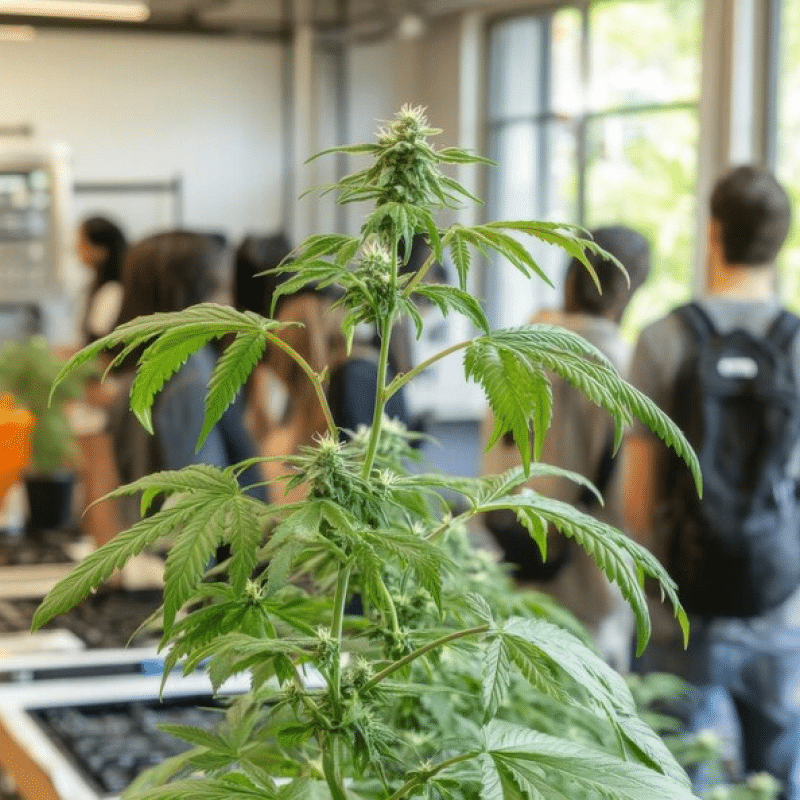How to Get a Cannabis License in New York
This article offers a detailed rundown of how you may obtain a New York cannabis license. Keep reading to determine the general requirements and procedures based on New York’s applicable state and federal laws.
Each business related to cannabis in New York must attain a license from the Office of Cannabis Management (OCM). These licenses are transferable subject to the board’s approval, and ownership of different licenses is permitted in specified circumstances.
There are different types of New York cannabis licenses that you can opt for. These include:
- Cultivator
- Processor
- Cooperative
- Distributor
- Retail Dispensary
- Microbusiness
- Delivery
- Nursery
- On-site Consumption
The OCM has clearly stated that:
- No individual can simultaneously possess both a cultivation and retail adult-use cannabis license.
- NY-licensed dispensaries cannot sell tobacco products.
Types of Cannabis Licenses in New York
Cultivation Licenses
Permits for growing cannabis, with various tiers based on facility size and growing conditions.
Manufacturing Licenses
Allows for processing cannabis into various products, including extracts and edibles.
Retail Licenses
Enables the operation of dispensaries and delivery services for medical and/or recreational use.
Distribution Licenses
Required for transporting cannabis products between licensed facilities.
Cultivation Licenses
Conditional cultivator licenses issued for hemp growers. Adult-use cultivator licenses rolling out.
Back to the TopManufacturing Licenses
Processor licenses required for extraction and infused products. Requires safety and GMP compliance.
Back to the TopRetail Licenses
Conditional adult-use dispensary licenses issued to social equity applicants.
Back to the TopDistribution Licenses
Distributor license required. Can only distribute from cultivator to retailer.
Back to the TopHow to Obtain a Cannabis License in New York
Research and Prepare
Before making any investments or committing to a game plan, every applicant should understand the ground realities of cannabis sales in NY. Officially, adult-use sales began in December 2022 and were supported by medical cannabis dispensaries in the state.
Later on, the foundation for recreational dispensaries was set but saw little progress. The Conditional Adult-Use Retail Dispensary (CAURD) license was introduced under this bracket, however, it limits the number of applicants through the conditions stipulated by the law.
CAURD applicants receive priority for licenses and applications for non-CAURD dispensaries are expected to open soon (with no estimated date disclosed).
So, the first step is getting familiar with the process for obtaining a CAURD license, such as the eligibility, documentation, and fee requirements. You can easily find this information and much more on the government’s official website.
Once you’re reassured that you meet the conditional aspects of the license, you can begin working on the next step.
Develop a Solid Business Plan
To convince the OCM that your cannabis businesses will succeed, you need a comprehensive business plan showcasing your commitment.
You can give a detailed account of what your expectations are and what you’ve envisioned. However, keeping a realistic outlook will work in your favor.
Your Business Plan Should Include:
While you may not be required to gather every single document we’ve mentioned, doing so will help your case.
- Executive Summary: Who you are as a company and your vision.
- Company Description: Management, Organizational structure, Organization of the team, etc.
- Operating Agreement.
- Market Analysis: Market and Competitor Analysis.
- Strategies: Compliance, marketing, and sales strategies.
- Financial Details: Budgets and other financial projections.
- Security: General security measures, risk management strategies, etc.
- Appendix: Extra documentation.
Note: Considering the importance of your business plan for obtaining the license, it’s best to consult professional assistance for both legal and business aspects. This advice is crucial for those who are new to the Cannabis industry in New York.
Assemble the Necessary Documentation
Before filing your application, gathering the right documentation takes quite some time. So, you should start collecting forms, evidence, and reports well before you plan on applying.
The basic documents required by the Office of Cannabis Management in New York are similar for each type of license (Dispensary, Cultivator, or Processor). However, there are different requirements for each so you should only collect paperwork for the particular category that interests you.
The specified list of documents includes:
- Evidence of being justice-involved (Certificate of Disposition or relevant court documents)
- Financial documents (Tax records, proof of financing, etc.)
- Proof of Significant Presence/Residence (Bank account, tax docs, property documents, etc.)
- Ownership record of business
- True Party of Interest (TPI) disclosure forms
- Business plan
- Applicant’s personal finance history
Much of your information will be collected through the online form, but you should possess the following documents for your convenience throughout the process.
- Proof of identification
- Proof of residence in the State of NY
- List of all share owners and stakeholders
- Local jurisdiction permits
- Proof of a surety bond (if required)
Note: You should only submit supporting documents based on their relevance. If you’re a social and economic equity applicant, you might have to submit some additional documents.
Submitting the Application
Once you’ve completed preparing for the application, you can move toward filling out the application form online. It will be located on the New York State Business Express (NYBE) website.
While you’re at it, ensure that you have all the necessary material available before you begin filling out the form.
The Cannabis business license applications from New York State are comprehensive, so you should set aside at least an hour or two to complete it. There are many steps where you may need to refer to legal documents, other government-issued certificates, and such, so you should fill out each component carefully.
Note: Before starting your application, reviewing the mockup application document uploaded by the state government is best. It shows you all the questions included in the form and details such as where files should be uploaded, what step you’ll pay the fee at, and much more.
Payment and Fees
Note: Fee structures are subject to change. Consult the official New York cannabis regulatory website for current fee schedules.
Application Fees
The application fee covers the initial costs associated with processing and reviewing cannabis business license submissions in New York. These fees vary depending on the type of license and the size of the proposed operation. It’s essential to ensure all application materials are complete and accurate to avoid delays or additional costs.
License Fees
License fees are required to maintain compliance and secure operating privileges for cannabis businesses in New York. These fees are determined based on the license type, such as retail, cultivation, or distribution, and are typically due annually. Staying current with license payments is crucial to avoid penalties or disruptions in business operations.
Application Review and Compliance Inspection
Once your application is submitted and the required fees are paid, your application moves into the screening phase. The OCM board members will begin checking each application and reviewing them based on their criteria.
The New York regulations choose qualified applicants based on a scoring system. The exact rubric for each scoring category is unknown, and there are special points for certain conditions. The system thus helps the board select the highest-scoring candidates who will be granted a license and be allotted their regional preference.
You may be asked for further documentation at some point, or some form of verification for the information you’ve provided. Other than that, you’re not required to do anything in the waiting period. The review period may take a few months, and you’ll be updated about the results on your application portal.
You may be subject to compliance inspections before or after you receive your license, so it’s important to be well-versed in state and county cannabis regulations. You must strictly comply with all relevant laws and adult-use cannabis regulations or risk losing your well-deserved dispensary in New York.
Receiving the Final License
Congratulations! You’ve been accepted as a candidate to receive the provisional license for running your cannabis dispensary in New York. Once you’ve received the green light and have finalized your location, you have 12 months to complete all remaining application requirements in the second leg of the process.
You now have the Guidance documents from the government to begin fine-tuning your coming business operations according to the regulations.
Risk and Compliance Factors From AlphaRoot
The cannabis industry, while burgeoning with opportunities, is not without its complexities and inherent risks. Understanding and mitigating these risks is crucial for long-term success. AlphaRoot, a prominent insurance and risk management firm specializing conduct business in the cannabis sector, sheds light on the key risk and compliance factors
1. Regulatory and Legal Risks
Labyrinthine Regulations The cannabis industry is highly regulated, and compliance with state and local laws is paramount for cannabis establishments. Navigating the intricate web of regulations, which can vary significantly from one jurisdiction to another, poses a substantial challenge for cannabis establishments. Failure to comply can result in fines, license revocation, or legal consequences.
Federal Ambiguity Cannabis remains illegal at the federal level in the United States, despite state-level legalization of recreational marijuana. This dichotomy creates uncertainties and exposes businesses that sell recreational marijuana here to potential federal enforcement actions.
2. Financial Risks
Cash-Intensive Operations Due to federal banking restrictions, many cannabis businesses operate primarily in cash. This not only presents security risks but also complicates financial management and taxation.
Taxation Challenges Cannabis businesses face unique tax challenges, including limitations on deductions and potential audits. Understanding and complying with tax regulations is essential to avoid financial penalties.
3. Security Risks
Theft and Robbery Cannabis businesses are susceptible to theft and robbery due to the high value of their products. Implementing robust security measures at a marijuana cultivation facility, including surveillance systems and secure storage, is vital to mitigate these risks.
Cybersecurity As with any industry, cannabis businesses are vulnerable to cyberattacks. Protecting sensitive customer data and business information is critical.
4. Product Liability and Quality Control
Product Liability Claims Ensuring the safety and quality of cannabis products is crucial to prevent product liability claims. Contaminated or mislabeled products can lead to legal and financial repercussions.
Testing and Quality Assurance Collaborating with reputable independent testing laboratory and facilities, as required by regulations, is essential to verify the safety and potency of cannabis products. Consistent quality control is essential to maintain consumer trust.
5. Market Competition and Volatility
Saturated Markets in regions with a high concentration of cannabis businesses, competition can be fierce. Navigating market saturation requires effective differentiation and marketing strategies.
Price Volatility The price of cannabis products can fluctuate significantly, impacting profitability. Businesses must adapt to market dynamics and price changes.
6. Environmental and Sustainability Concerns
Resource Intensity Cannabis cultivation and processing can be resource-intensive, including water and energy consumption. Businesses need to address sustainability concerns and adhere to environmental regulations.
Waste Management Proper waste disposal and recycling practices are essential to minimize environmental impact and meet regulatory requirements.
7. Talent and Workforce Challenges
Talent Shortages the cannabis industry often faces challenges in recruiting and retaining qualified personnel due to its specialized nature. Employee turnover can disrupt operations.
Training and Compliance Businesses must invest to ensure employees are well-informed about compliance and safety protocols.
About the Author

AlphaRoot Team
The AlphaRoot marketing team are seasoned experts with deep knowledge of the cannabis industry. Our informative articles help cannabis businesses thrive in a competitive landscape. From compliance to insurance tips, we’re dedicated to providing advice tailored to your needs.





